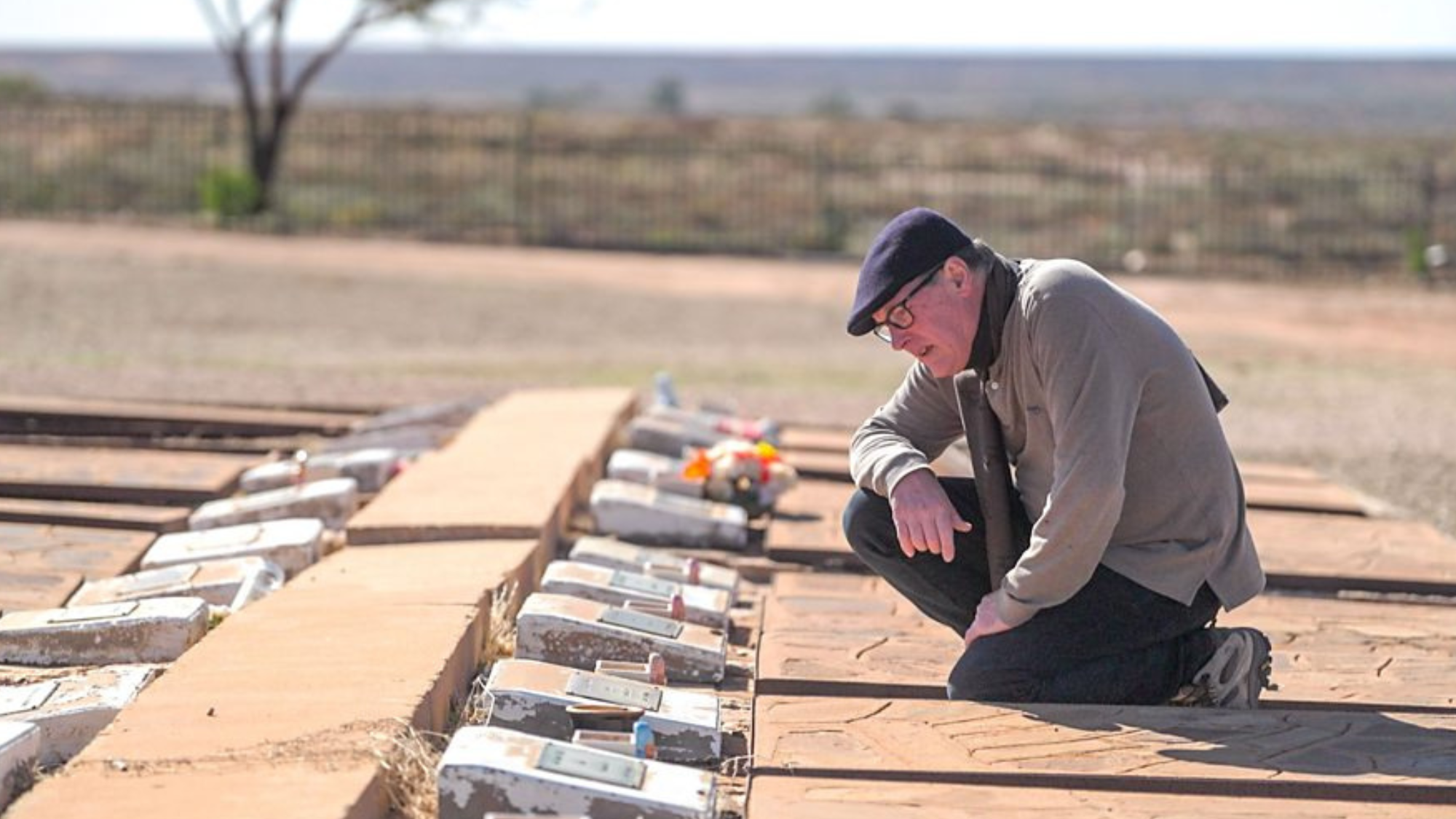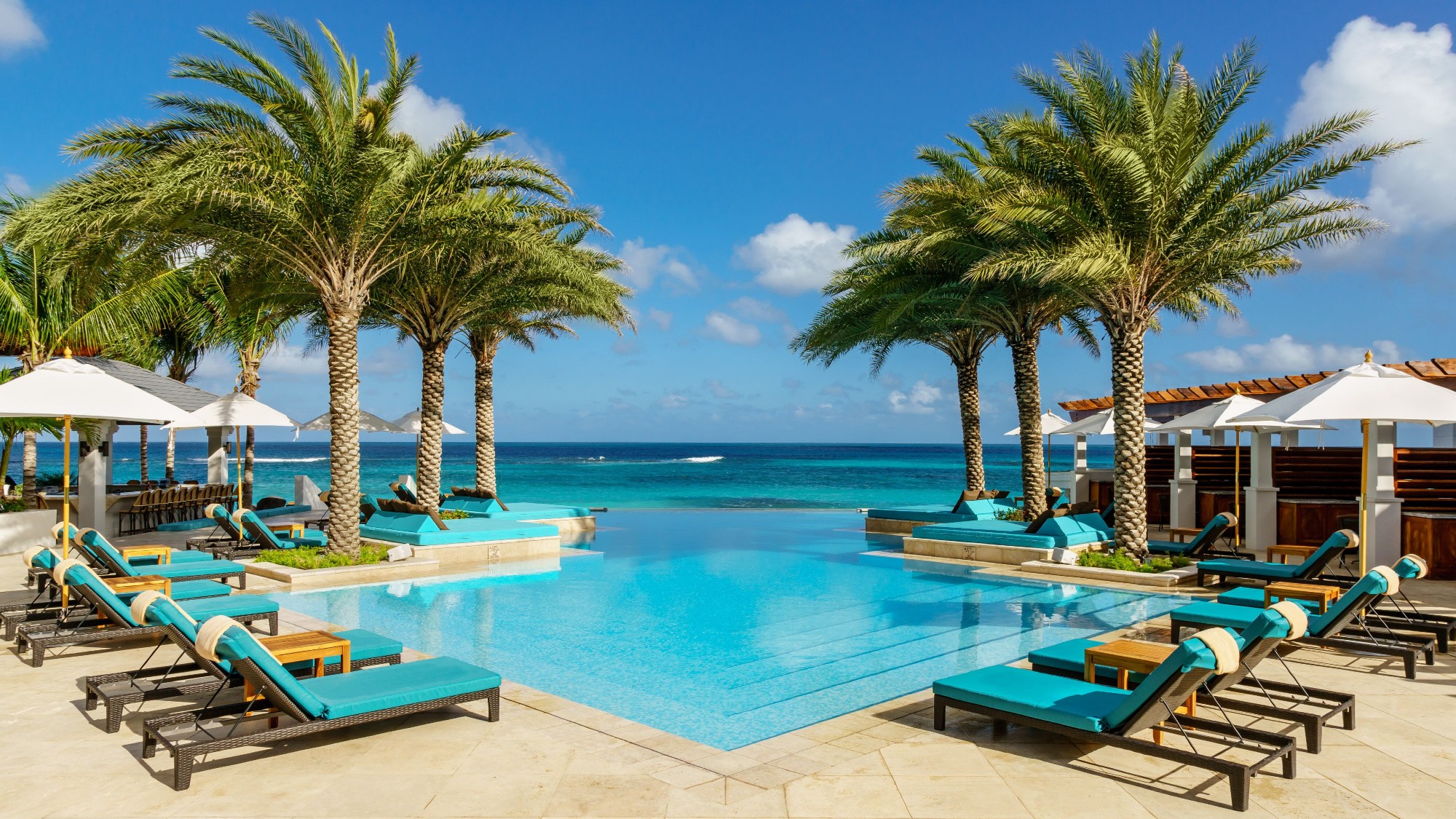Britain's Nuclear Bomb Scandal: Our Story: a 'calmly scathing' documentary
'Human guinea pigs' share moving TV testimony of 'traumatic' fallout from UK's atomic tests in the 1950s

A free daily email with the biggest news stories of the day – and the best features from TheWeek.com
You are now subscribed
Your newsletter sign-up was successful
It is "grimly fortuitous timing" that "Britain's Nuclear Bomb Scandal: Our Story" is being broadcast on BBC Two just as "Vladimir Putin's finger seems to be hovering close to the red button", said Carol Midgley in The Times.
The "weighty" documentary shines a light on the nuclear tests carried out by the British government in Australia and the South Pacific between 1952 and 1963, and the "terrible litany" of illnesses and deaths that have plagued the nuclear veterans ever since.
A "well-told reminder of the catastrophic, irreversible devastation" wreaked by nuclear weapons, the documentary suggests the extraordinary "brass neck of our Ministry of Defence", which continues to deny the link between the atomic testing and the veterans' subsequent health issues.
The Week
Escape your echo chamber. Get the facts behind the news, plus analysis from multiple perspectives.

Sign up for The Week's Free Newsletters
From our morning news briefing to a weekly Good News Newsletter, get the best of The Week delivered directly to your inbox.
From our morning news briefing to a weekly Good News Newsletter, get the best of The Week delivered directly to your inbox.
While the US, Australia, France, Canada, China and Russia have all paid compensation to their nuclear veterans, the UK has not. Instead, the British government has been "gaslighting" the veterans for years, said Susie Boniface, the investigative journalist, interviewed in the programme, who has spent two decades delving into what happened.
The UK's nuclear-testing scandal should be added to the long list of "injustices where walls of silence and lies" have prevented the powerless from "telling their whole truths", said Jack Seale in The Guardian.
This "calmly scathing" documentary carefully sets out the case, starting with the selection of the unwitting "human guinea pigs". A group of local people and British and Commonwealth servicemen and scientists witnessed 45 atomic and hydrogen bombs being detonated. Many were stationed at blast sites, so the "effects on humans" could be recorded.
A handful of British veterans are interviewed during the show, sharing their "traumatic" memories. They had no clue what they were letting themselves in for. At first, arriving at a tropical archipelago off the coast of Australia and "living a life of sunshine, beer, seafood and beach football", they thought they were in paradise.
A free daily email with the biggest news stories of the day – and the best features from TheWeek.com
But their painful recollections of "sitting on the beach and shielding their eyes" with their bare hands as they waited for a nuclear bomb to be dropped into the sea behind them is "eerie and nightmarish". One veteran recalls flying into the mushroom cloud in a plane, "looking down at the crimson inferno below before being flipped upside down by the force of the explosion".
Almost "more upsetting" is what happened next: many of the men's children and grandchildren were born with disabilities and genetic defects. The "official line" is that there is no correlation between this and the tests; "the veterans, bitterly and tearfully, disagree".
For the now-elderly surviving veterans "time is running out", and the lack of a public enquiry or any form of compensation feels deeply unfair. "Answering their questions honestly looks like the least we can do," said The Guardian's Seale.
The testing also had a devastating impact on the Indigenous Australians who lived near the testing sites, said Anita Singh in The Telegraph. In one distressing scene, local journalist Colin James visits the Woomera cemetery in Maralinga, and counts the graves of 22 stillborn babies and 34 infants who died before their first birthday. "Officially, they died as a result of heatwaves."
The "truth does have a habit of coming out eventually", said Midgley in The Times. "Maybe, like the Post Office scandal, it will take a TV drama to help it on its way."
Irenie Forshaw is the features editor at The Week, covering arts, culture and travel. She began her career in journalism at Leeds University, where she wrote for the student newspaper, The Gryphon, before working at The Guardian and The New Statesman Group. Irenie then became a senior writer at Elite Traveler, where she oversaw The Experts column.
-
 The Olympic timekeepers keeping the Games on track
The Olympic timekeepers keeping the Games on trackUnder the Radar Swiss watchmaking giant Omega has been at the finish line of every Olympic Games for nearly 100 years
-
 Will increasing tensions with Iran boil over into war?
Will increasing tensions with Iran boil over into war?Today’s Big Question President Donald Trump has recently been threatening the country
-
 Corruption: The spy sheikh and the president
Corruption: The spy sheikh and the presidentFeature Trump is at the center of another scandal
-
 The year’s ‘it’ vegetable is a versatile, economical wonder
The year’s ‘it’ vegetable is a versatile, economical wonderthe week recommends How to think about thinking about cabbage
-
 The biggest box office flops of the 21st century
The biggest box office flops of the 21st centuryin depth Unnecessary remakes and turgid, expensive CGI-fests highlight this list of these most notorious box-office losers
-
 Mail incoming: 9 well-made products to jazz up your letters and cards
Mail incoming: 9 well-made products to jazz up your letters and cardsThe Week Recommends Get the write stuff
-
 The 8 best superhero movies of all time
The 8 best superhero movies of all timethe week recommends A genre that now dominates studio filmmaking once struggled to get anyone to take it seriously
-
 One great cookbook: Joshua McFadden’s ‘Six Seasons of Pasta’
One great cookbook: Joshua McFadden’s ‘Six Seasons of Pasta’the week recommends The pasta you know and love. But ever so much better.
-
 How to navigate dating apps to find ‘the one’
How to navigate dating apps to find ‘the one’The Week Recommends Put an end to endless swiping and make real romantic connections
-
 February TV brings the debut of an adult animated series, the latest batch of ‘Bridgerton’ and the return of an aughts sitcom
February TV brings the debut of an adult animated series, the latest batch of ‘Bridgerton’ and the return of an aughts sitcomthe week recommends An animated lawyers show, a post-apocalyptic family reunion and a revival of a hospital comedy classic
-
 Caribbean resorts that call for serious rest and relaxation
Caribbean resorts that call for serious rest and relaxationThe Week Recommends Serenity is a flight away